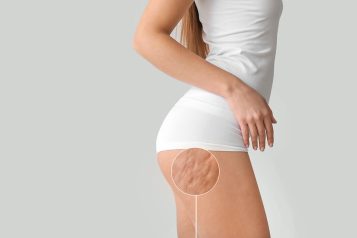A great smile is more than just a facial expression; it’s a powerful tool that can transform lives, enhance social interactions, and significantly improve mental well-being. The connection between dental aesthetics and psychological health is profound, and improving one's smile can be a catalyst for boosting confidence and self-esteem.
 Photo Credit: Courtesy of Josep Suria/Shutterstock
Photo Credit: Courtesy of Josep Suria/Shutterstock
The Science Behind Smiling
Smiling triggers a cascade of neurochemical processes in the brain. When we smile, our brain releases endorphins, dopamine, and serotonin—hormones that elevate our mood and reduce stress. This biochemical response not only makes us feel good but also influences how others perceive and interact with us. A genuine smile can make us appear more approachable, trustworthy, and friendly, which can lead to more positive social interactions and relationships.
Boosting Confidence and Self-Esteem
One of the most significant psychological benefits of a great smile is the boost it gives to confidence and self-esteem. Dental imperfections such as discolored, misaligned, or missing teeth can make individuals self-conscious and reluctant to smile. This reluctance can affect their social life, career opportunities, and overall quality of life. On the other hand, having a set of well-aligned, bright teeth can encourage people to smile more often, thereby enhancing their self-image and confidence.
Social and Professional Advantages
A confident smile can open doors to numerous social and professional opportunities. In social settings, people who smile frequently are often perceived as more likable and engaging. This perception can lead to more meaningful connections and friendships. In the professional realm, a great smile can make a lasting impression during job interviews, presentations, and networking events. Employers and colleagues are naturally drawn to individuals who exude confidence and positivity, traits that are often associated with a bright, genuine smile.
Psychological Well-Being
Improving one's smile can have a profound impact on overall psychological well-being. Individuals who undergo cosmetic dental procedures such as teeth whitening, orthodontics, or dental implants often report feeling happier and more satisfied with their appearance. This satisfaction can reduce anxiety, depression, and social withdrawal, leading to a more active and fulfilling lifestyle. The positive changes in self-perception and mental health underscore the importance of dental aesthetics in achieving holistic well-being.
The Role of Cosmetic Dentistry
Cosmetic dentistry plays a crucial role in helping individuals achieve the smile they desire. Modern dental techniques and technologies have made it easier and more accessible for people to improve their dental aesthetics. From simple procedures like teeth whitening to more complex treatments such as veneers and orthodontics, cosmetic dentistry offers a range of solutions to address various dental concerns. Consulting with a qualified cosmetic dentist can help individuals explore the best options for enhancing their smile and, consequently, their psychological health.
The psychological benefits of a great smile are undeniable. Beyond the aesthetic appeal, a beautiful smile fosters confidence, enhances social and professional interactions, and contributes to overall mental well-being. By investing in dental aesthetics, individuals can unlock a world of positivity and happiness, ultimately leading to a more vibrant and fulfilling life.
If you have any questions or concerns about your teeth, visit Dr. Mimi Yeung at M.Y. Dental Spa in New York, New York today!
For more information, visit Dr. Mimi Yeung's social media:






















